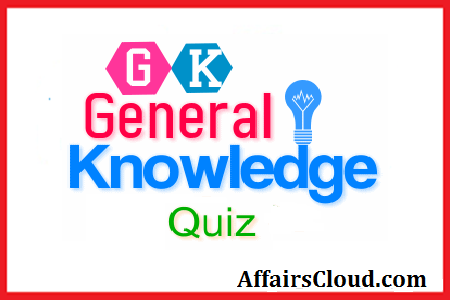Hello Aspirants. Welcome to Online General Knowledge section in Affairs cloud, which is important for all the competitive exams. We have created Some questions related to Indian GK(Indian Polity) !!!
- The Prime Minister of India is
1.Elected
2.Appointed
3.Nominated
4.Selected
5.None of theseAnswer – 2.Appointed
Explanation :
The Prime Minister appointed by the president of India.The PM is the leader of winning political party,which is majority in Lok Sabha - ………………… is an extra constitutional body.
1.Finance Commission
2.Language Commission
3.Planning Commission
4.Election Commission
5.None of theseAnswer – 3.Planning Commission
Explanation :
Planning Commission is an extra constitutional body, formed in 1951. - …………………. is introduced by the Indian Parliament to the World Parliamentary System
1.Zero Hour
2.Resolution
3.Reform
4.Question Hour
5.None of theseAnswer – 1.Zero Hour
Explanation :
Zero Hour in Parliament starts at 12 noon during which members raise matters of importance, especially those that cannot be delayed - The Authority to specify which castes shall be deemed to be scheduled castes rest with
1.Vice – President
2.Prime Minister
3.Chief Justice of India
4.President
5.None of theseAnswer – 4.President
Explanation :
Authority to specify which castes shall be deemed to be scheduled castes rest with President - The proposal for the creation of new All India Services can be considered only
1.If Rajya Sabha passes a resolution by two-thirds majority
2.If Lok Sabha passes a resolution by two-thirds majority
3.If both Rajya Sabha & Lok Sabha passes a resolution by two-thirds majority
4.If majority of State Legislature make such demand
5.None of theseAnswer – 1.If Rajya Sabha passes a resolution by two-thirds majority
Explanation :
Under Article 312 the Rajyas Sabha by passing a resolution by two thirds majority of the members present & voting can set up an All India Services (AIS). Presently only the IAS, the IPS and the IFS have been constituted as All India Services. - The Government of India Act, 1935 as a new charter of bandage was described by …………
1.BR Ambedkar
2.Rajesndra Prasad
3.Jawaharlal Nehru
4.Mahatma Gandhi
5.None of theseAnswer – 3.Jawaharlal Nehru
Explanation :
The Government of India Act, 1935 as a new charter of bandage was described by Jawaharlal Nehru - Who enjoys the rank of Cabinet Minister in Union Cabinet ?
1.Secretary of GOI
2.Political Advisor to PM
3.Judge of SC
4.Deputy Chairman of Planning Commission
5.None of theseAnswer – 4.Deputy Chairman of Planning Commission
Explanation :
the Prime Minister as the ex officio Chairman, the committee has a nominated Deputy Chairman, who is given the rank of a full Cabinet Minister. At present, Panagariya enjoys the rank of the Cabinet minister, but it is of nominal nature - Judicial review in the Indian Constitution is based on …………………………….
1.Convention of Law
2.Procedure established by Law
3.Process of Law
4.Rule of Law
5.None of theseAnswer – 2.Procedure established by Law
Explanation :
Judicial review in the Indian Constitution is based on Procedure established by Law - Which two state had non- Congress Ministers in 1937 ?
1.Bijar & Uttar Pradesh
2.Madras & Bengal
3.Punjab & Bihar
4.Bengal & Punjab
5.None of theseAnswer – 4.Bengal & Punjab
Explanation :
Only Bengal and Punjab had non-Congress ministries in 1937 - …………………. are the two types of democracy
1.Direct & Indirect
2.Parliamentary & King
3.Parliamentary & Presidential
4.Monarchical & Repblican
5.None of theseAnswer – 3.Parliamentary & Presidential
Explanation :
The two predominate forms of democratic governments: parliamentary and presidential.
AffairsCloud Recommends Oliveboard Mock Test
AffairsCloud Ebook - Support Us to Grow
Govt Jobs by Category
Bank Jobs Notification



